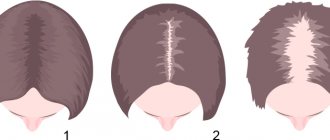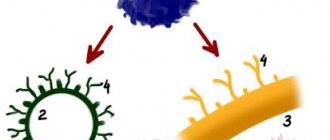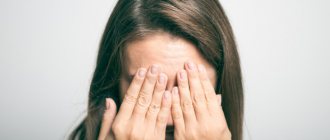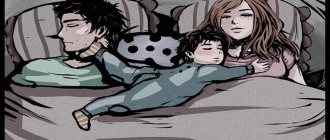Insomnia is the most common complaint among older people. Insomnia in old age manifests itself in difficulties falling asleep and maintaining sleep duration; for these reasons, a person is susceptible to daytime sleepiness.
The alternation of sleep and wakefulness is controlled by the internal clock in the human body, determining a more comfortable mode. However, with age, hormonal changes have a steady effect on the disruption of their activity. Actually, this is why older people wake up and go to bed at an earlier time compared to the younger generation.
Insomnia in old age. Causes
Old age is caused by a number of reasons that are completely different in nature. These are mainly age-related physiological transformations occurring in the body:
- Increased nervous excitability.
- Deterioration of cerebral circulation due to lack of melatonin.
- Cases of apnea (suspension of breathing during sleep) become more frequent over the years.
- Cardiovascular diseases and central nervous system pathologies.
- Uncomfortable condition of the limbs and cramps in them.
- Changes in biological rhythms.
Other reasons:
- Depression and being under stress.
- Decreased social activity.
- Limitation of physical activity.
- Drinking drinks containing caffeine.
Medicines can also cause insomnia. Often the cause of insomnia is a side effect from the use of medications:
- Heart medications (against arrhythmia, glycosides).
- Antibiotics (pharmacological group quinolones).
- Psychotropic drugs.
- Hormonal substances.
- Drugs for the treatment of cancer.
Symptoms of sleep disorders in the elderly
Insomnia is a single set of complaints and negative manifestations that are associated with sleep disorders. The most common characteristics for older people are:
- Difficulty falling asleep;
- Shallow sleep with periodic awakenings;
- Dreams of heavy and disturbing content;
- Waking up too early in the morning;
- There is a feeling of anxiety at the moment of awakening and immediately after it;
- If you wake up unexpectedly for any reason, it becomes difficult to go back to sleep;
- There is no feeling of rest, vigor and “clarity” following the final awakening.
Typical cases are when patients cannot sleep for a long period and toss and turn on the bed in search of a suitable position. Following falling asleep, a short sleep occurs, accompanied by strong and negative dreams. The process ends with a restless awakening in the early morning (4–5 am).
Forms of insomnia
Sleep disturbance in older adults is divided into two forms, depending on the duration of exposure to sleep-related disorders:
- Transient insomnia lasts for an indefinite period of time and disappears spontaneously. Often it is predetermined by the occurrence of any stressful circumstances or diseases that affect the normal night sleep pattern.
- Chronic insomnia is a more fundamental problem. Those suffering from it can experience sleep disturbances for many months and even years, making fruitless efforts to eliminate them on their own. Mainly, the characteristic signs of such disorders are unresolved problems of a psychological nature and difficulties in social adaptation.
Sleep duration depends on age
We need quality sleep. At night, mainly from 23.00 to 01.00, a vital hormone - melatonin - is produced. It regulates circadian rhythms, stimulates the immune system, and has antioxidant properties.
Both physical and psycho-emotional comfort are important for a person’s health. Such harmony can be created if all phases of sleep are present in the correct percentage. If the duration of sleep decreases and the structure of the phases is disrupted, then amyloid protein forms and accumulates in the blood.
As people age, their sleep deteriorates due to a reduction in the deep phases of slow-wave sleep, during which anabolic processes and brain detoxification occur. Aging and senile dementia are caused by the accumulation of amyloid plaques in the brain of an elderly person, which ultimately reduces life expectancy. In addition, amyloid destroys the walls of blood vessels, causing heart disease.
Household members consider the early awakening of elderly relatives almost a whim or, even worse, a pathology: they say that an out-of-mind grandmother wakes up early and wakes us up. Doctors explain that at different ages people have different needs for sleep, and you need to come to terms with this.
Oksana Belan:
— If a small child sleeps until 18 o’clock, then a teenager sleeps 9-11. 7-8 hours are enough for an adult, and up to 6 hours for an elderly person, since the need for sleep duration decreases with age.
By nine o'clock in the evening, older people, as a rule, are already tired and go to bed. If you managed to fall asleep immediately, then it is logical to assume that you will wake up at 3–4 o’clock in the morning. Or evening fatigue drives you to bed, and sleep does not come for a long time. In both the first and second cases, the elderly person does not know what to do while lying in bed in the dark. What to do?
The first is to accept the fact that the need for sleep duration has changed. To avoid going to bed early, it is recommended to get the rest your body needs during the day to replenish its strength. But without falling asleep. If an elderly person falls asleep for half an hour before or after lunch, his night's sleep will decrease accordingly. You can only fall asleep during the day if this leads to improved night sleep.
Secondly, come up with an activity for yourself so that aimless wakefulness in bed is not painful. If you prefer to watch TV, then these should be calm programs that do not evoke strong emotions, for example, the “Culture” channel or educational programs, television programs about animals and nature. The main thing here is not to get excited or get carried away. You can listen to quiet classical music. The same applies to books. By the way, many people come to read prayers with age. This type of activity is calming in nature due to its calming monotony. If you do not disturb your household, you can quietly get up and do something around the house.
Often older people build their schedule this way. They go to bed early, wake up at three or four in the morning, and can prepare breakfast. If there is an appetite, eat immediately; if not, leave it until the morning. Someone wipes the dust, waters the flowers, does hygiene procedures that they didn’t have enough energy for in the evening. Then, as a rule, they feel the need to take a nap and lie down for an hour and a half, which helps them feel great until the evening. And that's okay. It is important to understand and accept your new rhythm. For older people, the number of hours of sleep is calculated not per night, but per day.
Specifics of sleep disorders in the elderly
Elderly people suffering from insomnia are characterized by features that distinguish this pathology. Patients of the younger generation mainly experience problems with falling asleep, while insomnia in older people is expressed mainly by the problem of frequent awakenings, too light sleep and dreams of an anxious and disturbing nature. Sleep does not bring a sense of rest to elderly patients, and often grandparents prefer not to sleep at all rather than undergo such suffering every night.
Causes of insomnia in older people, consultation with a somnologist at the Sleep Medicine Center in Moscow
The problem of insomnia in older people is not normal and requires treatment
In every family where there are elderly parents or grandparents, it was noted that people of advanced age have a slightly different wakefulness-sleep regime than younger relatives. Older people may doze off more often during the day, but at night they experience sleep problems in the form of various disorders. In the future, sleep disorders in older people may intensify and develop into chronic insomnia, which requires treatment. Insomnia in older people is not at all the norm. Sleep disorders cause disruptions in the human body and lead to various other problems, including decreased immunity. Constant lack of sleep affects the psycho-emotional state of an elderly person and causes physical illness. Even in old age, you should not ignore the symptoms of insomnia. If you experience sleep disorders, we recommend that you do not delay your visit to a doctor who treats insomnia. A doctor who treats insomnia is able to correctly determine the causes of the ailment, as well as take the necessary measures by selecting an appropriate treatment regimen for insomnia in an elderly person.
Disease or physical feature of the body?
Surely, you have observed the seemingly normal behavior of your relatives in old age. Elderly people may often wake up at night, for example, to drink water, and then cannot fall asleep for a long time, and during the day, at the first opportunity, they can take a nap for 15-20 minutes in any secluded place. Somnologists at the Somnology Center in Moscow do not consider this phenomenon to be the norm and recommend observation and simple treatment.
The problem of insomnia in older people requires mandatory correction and timely contact with a qualified doctor dealing with the problem of insomnia to prescribe treatment. In medicine, special methods have been developed to treat the problem of insomnia in older people. Individual characteristics of the body play an important role in the choice of treatment.
ICD codes for insomnia problems in older people
Doctors around the world still consider the problem of insomnia in older people to be a separate disease and have even assigned codes to this condition according to the International Classification of Diseases.
G9 – uncertainty with sleep disorder. Doctors will need to conduct special examinations to make an accurate diagnosis. A person is not able to independently determine the nature of the sleep disorder; accordingly, the doctor cannot diagnose a somatic or psychogenic connection.
F0 – insomnia of non-organic etiology. Elderly people often have a desire to give up sleep on a psychological level. Frequent awakenings at night are associated primarily with psychological factors that suppress the desire to fully rest.
G0 – disturbance of falling asleep and maintaining sleep. Old people often look for problems and take the past day too seriously, and on the eve of falling asleep they replay all the events. After falling asleep, sleep is still intermittent and sensitive.
Despite the physical characteristics of the body and the advanced age of a person, normalization of sleep is still necessary for proper rest. Constant lack of sleep has a negative impact on the body. People become nervous, irritable, and grouchy. Most relatives and friends gradually give up close communication with such people, since the regular discontent of the opponent pushes people away.
Sleep Medicine Center in Moscow on the basis of the Rehabilitation Clinic in Khamovniki
The somnology center in Moscow in Khamovniki (Efremova str., 12/2) has extensive experience in treating patients with problems of insomnia, snoring, and obstructive apnea. Modern treatment methods, such as cognitive behavioral therapy, polysomnography , CPAP therapy, meditation, used by doctors treating insomnia (somnologist) in Moscow, give excellent results and allow you to cope with the problem of insomnia in most cases once and for all.
The head of the Somnoligious Center in Moscow, in Khamovniki is Professor, Doctor of Medical Sciences, Honored Doctor of the Russian Federation - Roman Vyacheslavovich Buzunov .
Head of the clinic - BUZUNOV ROMAN VYACHESLAVOVICH - President of the Russian Society of Somnologists, Honored Doctor of the Russian Federation, Professor, Doctor of Medical Sciences, leading Russian expert on insomnia, snoring, sleep apnea and CPAP therapy, Professor of the Department of Regenerative Medicine and Medical Rehabilitation with courses in Pediatrics and Nursing , Clinical Psychology and Pedagogy FSBI DPO “Central State Medical Academy” UD of the President of the Russian Federation,
President of the All-Russian public organization "Russian Society of Somnologists",
Biography on Wikipedia
Information about outpatient consultations and examinations : www.buzunov.ru.
Make an appointment : +7 (495) 7-33-195, +7 (985) 77-33-195 The team of the Sleep Medicine Center based at the Rehabilitation Clinic in Khamovniki are top-level professionals who have focused their knowledge on the problems of sleep disorders. On the account of somnologists in Khamovniki in Moscow, hundreds of patients leave the clinic, overcoming the problem of insomnia (using the method of cognitive behavioral therapy), snoring, obstructive sleep apnea ( CPAP therapy ), and leaving positive reviews about the Somnology Center in Moscow in Khamovniki. The Sleep Medicine Center in Khamovniki is one of the best insomnia treatment centers in Moscow. Individual treatment regimens for insomnia for men, women, the elderly, children and adolescents are drawn up.
Causes of insomnia in older people that require treatment
Organic causes of senile insomnia
The problem of insomnia in older people may be associated with somatic diseases
Urinary dysfunction. In old age, all organs and systems of the human body begin to malfunction. The urinary system is no exception. Men may develop prostatitis, women may develop tumors, kidney disease
Heart pain at night causes a person to involuntarily wake up earlier than expected in anticipation of another heart attack. People suffering from cardiovascular diseases are forced to wake up early in the morning; accordingly, the body does not have time to recover, the elderly person feels depressed throughout the day
Peptic ulcer disease. Elderly people may wake up at night to drink water not from thirst, but from hunger pain. Often, when a person comes to the kitchen, he begins to eat. After a late-night buffet, it’s rare to fall asleep quickly
Breathing problems. The fear of another attack of suffocation in people suffering from asthmatic diseases leads to sleep disturbances. Normalization of sleep is required to restore the body. Systematic lack of sleep and early morning rises provoke a number of concomitant diseases, including at the psychological level. A somnologist at the Somnology Center in Moscow in Khamovniki is ready to help every patient who applies and select a treatment regimen on an individual basis.
If the underlying problem of insomnia is an illness, after proper diagnosis and treatment, sleep is gradually restored. At the same time, it is advisable to make an appointment with a somnologist at the Sleep Medicine Center in Moscow for some time to monitor the condition and prescribe medication for insomnia, available in pharmacies without a prescription.
Psychological causes of senile insomnia
Feeling abandoned by family
Complete loneliness after the loss of a loved one
Internal fears, phobias
Lack of attention from family
Misunderstanding by loved ones
Changing of the living place. Elderly people find it difficult to adapt to a new place
Retirement. After completing work, a person feels useless in society; not everyone is ready to accept a new status. Psychological hostility causes a number of disorders, including sleep disorders
It is very important to understand the cause of sleep disorders in an elderly person. After all, it may even depend on which doctor you will need to see in the future: a therapist, a neurologist, a psychotherapist, a somnologist. Accordingly, the treatment regimen for insomnia will differ. Therefore, do not delay your visit to a somnologist for a consultation at the Sleep Medicine Center in Moscow. This will help you cure your sleep and always stay alert and healthy.
For more information or to make an appointment with a sleep specialist, call 5.
Call:
+7(495) 77-33-195
Leave a request:
Insomnia remedies for the elderly
Choosing an effective remedy for sleep disturbances is important especially for older people. The vast majority of drugs are based on medicinal herbs. This type of product includes “Afobazol”, “Pepsen”, “Novopascit”. However, according to statistical data, many people, faced with such a problem as sleep disturbance in the elderly, prefer to use sleeping pills, which is strictly not recommended without a doctor’s prescription.
In order to avoid addiction to sleeping pills, the doctor usually prescribes the smallest dose of the drug and a short course lasting from several days to two weeks. Without a prescription at the pharmacy, in order to combat sleep disorders, you can purchase medications for insomnia in old age, such as:
- Phenobarbital-based sedatives (“Korvalol”, “Balocordin”);
- Drugs that improve blood circulation in the brain (“Tanakan”, “Memoplant”);
- Adaptogens (“Melatonex”, “Melatonin”).
Insomnia medications for older people with stronger effects should be prescribed by a doctor. Their action does not have an immediate effect and may lead to negative effects:
- Deterioration of reaction;
- Partial memory loss;
- Influence only at the time of use.
Prevention of insomnia
To prevent insomnia in older people, experts advise following the following recommendations:
- Take daily walks in the fresh air;
- Go to bed at the same time;
- If possible, avoid daytime naps;
- Maintain the air temperature in the bedroom no higher than 21 degrees, ventilate the room daily;
- It is advisable to only sleep in bed, and not drink tea or watch TV;
- Choose calming “rituals” for yourself and perform them before bed (take a bath, listen to music, breathe deeply). The relaxation technique is individual for each person;
- Do not overeat before bed, avoid heavy foods. Do not drink strong tea and coffee in the evening;
- Use comfortable pillows and mattresses;
- Stop smoking and drinking alcohol.
The main task in the fight against insomnia is to identify and eliminate its cause. The specialists of the Ultramed clinic have been successfully coping with this task for 20 years, using modern effective techniques and an individual approach to each patient. We provide our clients with the choice of a single or shared ward, as well as the ability to transport the patient to the clinic and back absolutely free!
In many cases, the use of folk remedies helps to significantly improve the quality of sleep. Do-it-yourself preparations can be used both internally and externally. Using a holistic approach can help achieve effective relief from insomnia. But it is always important to take precautions to save yourself from harmful consequences.
Oral preparations
- Herbal decoctions;
- Herbal infusions.
Herbal remedies should be taken in courses of 2-4 weeks until symptoms disappear completely.
Having chosen folk remedies as a treatment for insomnia, it is necessary to carefully monitor the general condition of the body. Allergic reactions to decoctions and infusions may occur. This is often due to individual intolerance to their components. In this case, you should immediately stop taking the drug and seek medical advice.
Products for external use
- Relaxing baths based on plants and herbs.
You should stay in such baths for about 10–20 minutes. The temperature should be between 35-37 ℃, otherwise the result will not be achieved. Sessions must be performed every other day, 30 minutes before bedtime.
However, before carrying out water procedures, you should consult a specialist. This condition must be met, since elderly people often have a large number of contraindications for such sessions. It is highly not recommended to self-medicate for those who suffer from hypertension, heart problems, hernias, diseases of the musculoskeletal system and internal organs.
It should be remembered that the use of some methods of treatment with folk remedies can cause changes in blood pressure, as well as lead to stress on the heart and other internal organs. If you have any somatic diseases, it is also important to discuss the choice of one or another non-traditional approach to the treatment of insomnia with your doctor.
Diagnosis of insomnia
In order to correctly diagnose the cause of insomnia, it is necessary to conduct a comprehensive examination. The doctor at the Doctor SAN clinic in St. Petersburg will examine the patient and interview him in order to make the correct diagnosis. The patient will greatly help the doctor by frankly describing the nature of the problem and the moment of insomnia.
In order to make an accurate diagnosis, we use the following diagnostic methods:
- MRI. Magnetic resonance imaging
- Ultrasound examination (ultrasound)
- Electrocardiogram (ECG)
- Laboratory research.
Treatment of senile insomnia at the Doctor SAN clinic
At the Doctor SAN clinic, we perform a broad diagnosis of sleep disorders before prescribing treatment for insomnia in older people. After a detailed interview, the doctor will determine the remedy suitable for a particular patient.
In the vast majority of cases of sleep disturbance in elderly and elderly people, the use of psychotherapy methods shows a good effect, and hypnotherapy sessions are also recommended for patients. And only if there is a special need, the doctor will prescribe a sleeping pill suitable for a specific situation.
If there is a suspicion of pathology of internal organs, additional examinations will be recommended. Here you can undergo ECG, EEG, ultrasound. Also in our clinic you can get advice from a therapist, endocrinologist, neurologist-epileptologist. If necessary, you can contact a somnologist and get a polysomnogram. In the vast majority of cases where sleep disturbance occurs in the elderly, treatment leads to a significant improvement in the patient's condition.
Causes
Insomnia is a systematic sleep disorder in which waking up, falling asleep, depth and duration of sleep are disrupted. In the elderly, there are two types of insomnia: transient (caused by stressful situations) and chronic (permanent, due to physiological changes in the body). Typically develops after age 60.
Insomnia is considered to be not only long periods of sleep and shallow sleep, but also frequent awakenings at night with a lack of vigor in the morning.
Chronic pathology does not occur quickly. It is preceded by long-term processes: the development of diseases, long-term stress, regular violations of hygiene and sleep patterns.
The causes of insomnia in older people are associated with a decrease in the production of melatonin (sleep hormone) in old age.
A decrease in this hormone is caused by:
• Experiences that make it difficult to sleep: thoughts about loved ones, illness, pensions, lack of funds, memories of the past; • Poor sleep hygiene: uncomfortable bed, light and noise in the room. For healthy sleep, you need a quiet and peaceful environment without light or noise; • Diseases: asthma, hypertension, tachycardia, diabetes, osteoporosis and others - you must be treated by a specialist; • Mental disorders: depression, anxiety, chronic anxiety, schizophrenia, neuroses, nightmares. Psychological problems may also arise: fears of poverty, death and others. Specialists will help a person cope with mental illnesses and serious problems. If an elderly person is experiencing a temporary problem, he needs someone to open up to and have a heart-to-heart talk with; • Chronic pain and fatigue; • Taking energy drinks and certain medications that cause insomnia. In this case, the attending physician prescribes the dosage or changes the treatment regimen; • Sedentary lifestyle and excess weight. The lack of physical activity can be compensated for by special exercises, regular walks, and household work; • Snoring, convulsions, trouble breathing. You need to contact a specialist to solve the problem; • Bad habits: violation of a healthy sleep schedule, drinking alcohol before bed, falling asleep while watching TV. Menopause and postmenopause in older women. These conditions can cause night sweats and hot flashes, making women's sleep interrupted. This sleep pattern may persist during postmenopause. Exercise and diet will help overcome the problem; • Lack of sunlight. Sunlight regulates the production of melatonin, so older people benefit from walking in good weather.







